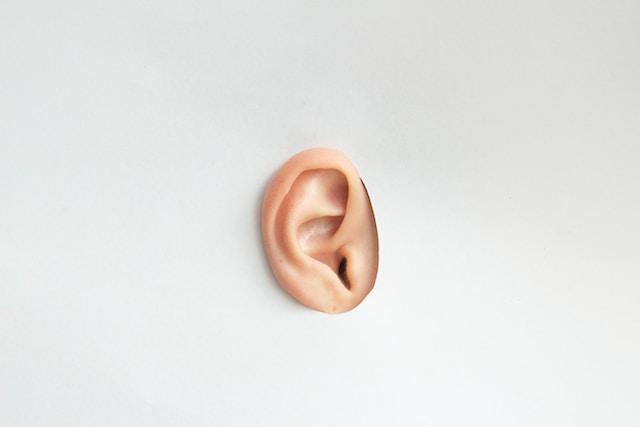 0
0
The Importance of Being Heard: Enhancing Mental Health Through Active Listening
Singapore
Oct 10 2023
In the bustling symphony of our daily lives, the desire to be heard and understood is a fundamental human need that often goes unaddressed. Whether we’re sharing our joys, fears, or challenges, having someone truly listen can be transformative. In this post, we’ll explore the profound significance of feeling heard and delve into how active listening can positively influence mental health and overall well-being.
The Power of Being Heard
Why Is It Crucial for Individuals to Feel Heard and Understood?
To truly appreciate the significance of being heard, we must first recognise its intrinsic connection to our emotional and psychological well-being. The need to be heard and understood stems from our inherent desire for validation and connection. When our thoughts, feelings, and experiences are acknowledged and respected by others, it can have a range of positive effects:
- Validation and Emotional Support: Feeling heard validates our emotions and experiences, reassuring us that our feelings are real and legitimate. This validation provides a crucial foundation for emotional well-being.
- Reduced Stress and Anxiety: Being heard allows us to unload the burdens of our thoughts and feelings, lessening stress and anxiety. It provides a safe space to express ourselves without fear of judgment.
- Enhanced Self-Esteem: When we feel heard, we gain a sense of self-worth. This, in turn, boosts our self-esteem and confidence, empowering us to navigate life’s challenges more effectively.
- Improved Relationships: Being heard fosters deeper connections in our relationships. It strengthens trust and intimacy by creating an environment where individuals can be vulnerable and authentic with each other.
The Impact of Active Listening on Mental Health and Well-Being
Now that we’ve established the importance of being heard, let’s explore the role of active listening in fulfilling this need and its subsequent benefits for mental health.
Active listening is a communication skill that involves not just hearing words, but also understanding, empathising, and responding thoughtfully to the speaker. It goes beyond mere surface-level acknowledgement and requires the listener to be fully present in the moment. Here’s how active listening contributes to mental health:
- Enhanced Emotional Connection: Active listening deepens the emotional connection between individuals. When someone actively listens to us, it sends a powerful message that they care about our thoughts and feelings.
- Validation and Empathy: Active listening involves empathetic responses that convey understanding and support. This validation helps individuals process their emotions and experiences, reducing feelings of isolation.
- Stress Reduction: Sharing our thoughts and concerns through active listening can be cathartic. It provides an outlet for stress and emotional tension, promoting mental clarity and relaxation.
- Conflict Resolution: Active listening is a vital tool for resolving conflicts. When both parties feel heard, they are more likely to find common ground and work together toward a solution.
- Improved Mental Health Outcomes: Studies have shown that individuals who feel heard and supported are more likely to seek help for mental health issues. Active listening can be a gateway to accessing professional support when needed.
Cultivating Active Listening Skills
Given its profound impact, it’s clear that active listening is a skill worth developing. Here are some practical tips for enhancing your active listening abilities:
- Be Fully Present: Give the speaker your undivided attention. Put away distractions and focus on their words and non-verbal cues.
- Empathise and Validate: Show empathy by acknowledging the speaker’s emotions and experiences. Use phrases like, “I understand how you feel” or “That must have been tough.”
- Ask Open-Ended Questions: Encourage the speaker to share more by asking open-ended questions that require more than a simple “yes” or “no” response.
- Avoid Interruptions: Resist the urge to interrupt or offer immediate solutions. Let the speaker express themselves fully before responding.
- Use Non-Verbal Cues: Maintain eye contact, nod in agreement, and use non-verbal cues to show that you’re engaged and attentive.
In Short
In a world filled with constant noise and distractions, the simple act of being heard can have profound effects on our mental health and overall well-being. When we actively listen to others, we not only fulfil their need for validation and understanding but also create a more compassionate and empathetic society.
So, let’s strive to be better listeners, to provide the space for others to express themselves openly and without judgment. In doing so, we can foster stronger relationships, reduce stress, and contribute to a healthier, more supportive community where everyone’s voice matters.
Related articles
Self-Care and Mental Well-being: Practical Tips for a Balanced Life
Debunking Common Misconceptions About Counselling: Promoting Effective Mental Health Support
If you like what you read, follow us on Facebook, Instagram or LinkedIn to get the latest updates.
Have a question? Reach out to us through our contact form or WhatsApp.
Want to speak to our clinicians? Book your appointment here!

Join Our Newsletter
Subscribe to our newsletter and receive daily updates & promotions!






